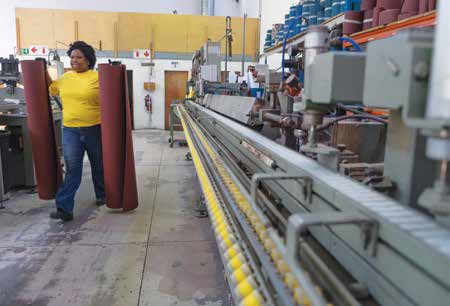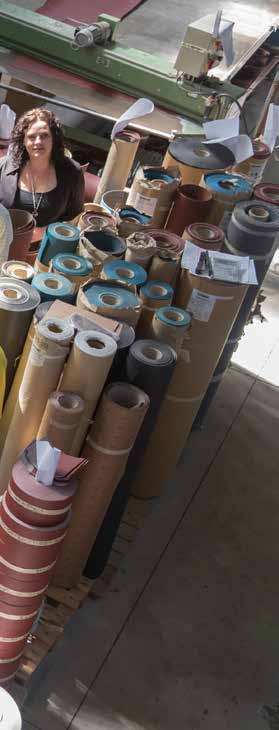We spoke to Sonja Klopper, managing director of Ekamant, about women’s roles in the South African stainless steel industry.
 ARE WOMEN UNDERREPRESENTED IN THE STAINLESS STEEL INDUSTRY?
ARE WOMEN UNDERREPRESENTED IN THE STAINLESS STEEL INDUSTRY?
In the context of leadership, yes.
There are many women that work admin positions in our industry but in sales and leadership, they’re probably under-represented.
WHY DO YOU THINK THAT IS?
I think there are some women that wouldn’t enjoy the work. For instance, when our sales reps do field work, they have to understand manufacturing processes and go into factories and engage primarily with males right on the production floor. I’m not saying they can’t do it – our female sales representatives do it all the time – but some might not want to.
But really, I think the whole thing goes back to a high school level, where young women simply aren’t exposed to the idea that steel fabrication is an
industry they could thrive in, that it’s ok for women to pursue an industrial career. Even now, in 2017, there’s still a shortage of women entering technical and scientific career paths.
Part of it could also be cultural. If you look at the job market, and the level of unemployment in this country, then it does seem like parts of the country aren’t being exposed to the idea that women can do this sort of work. There is a historical misunderstanding of women’s roles and what they’re capable of. I think we’re in the process of changing that, but it will still take some time.
 IS THERE A DIFFERENCE BETWEEN MEN AND WOMEN ON THE GROUND?
IS THERE A DIFFERENCE BETWEEN MEN AND WOMEN ON THE GROUND?
Not really, no. If you look at our factory, we have about an equal ratio of men and women on the production floor.
Some women might not be able to pick up something as heavy as a man could but there are also processes that require a lot of dexterity that they tend to be better at.
AS A LEADER, HOW ARE YOU WORKING TO ADDRESS THIS?
Our company has a focus on BEE and empowerment. So when we consider candidates for a new position, if all other attributes are equal, our policy as to empower black females first and then black males. And our current employment ratio is about even.
DO WOMEN LEAD DIFFERENTLY?
Not really. I think women, because they haven’t been in the industry, might feel a little unsure and this translates to a more amiable attitude but we are certainly not pushovers. My own style tends to be quite democratic; I invite input and I try to understand where someone is coming from in terms of their upbringing. I lead through counsel and education rather than force.
It’s an effective approach because I used to work very closely on the floor but due to the growth of the company, I’m not as involved on a practical level as I used to be.
Maintaining my approachability lets me stay plugged into the people who work daily with certain problems.


